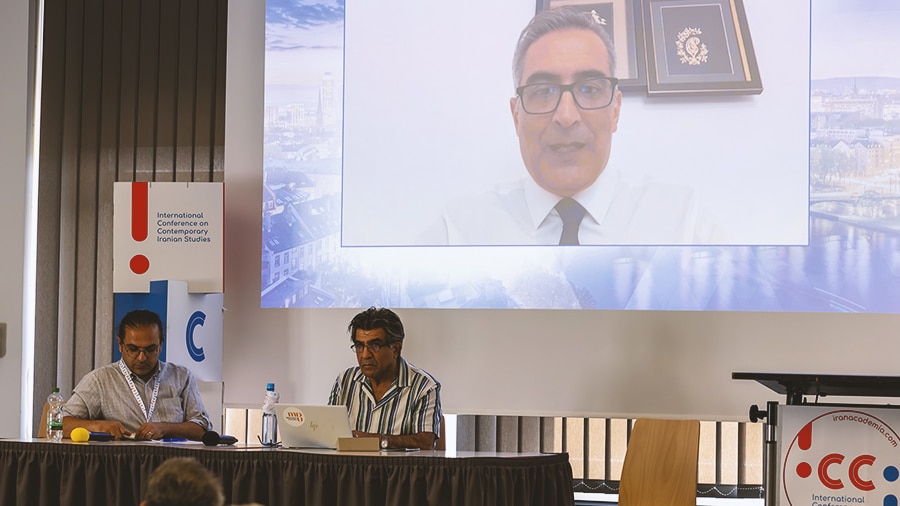Javad Khorami Moghaddam
Moghaddam The Effect of Suppressing Protesters on the Subsidence of Protests in January 2018
Mehrdad Darvishpour
Violence, Power, and Social Movements
Moderator: Hadi Miri Ashtiani
Javad Khorami Moghaddam’s research examines the effects of state suppression on the protests that erupted across Iran in December 2017. His study specifically addresses whether intense government repression, which included numerous arrests and a death toll, was a decisive factor in curbing the momentum of these widespread demonstrations.
The protests, sparked initially by economic grievances, quickly spread to encompass broader political demands across more than 100 cities, surprising many analysts. Drawing on theories of revolutionary conditions, Khorami Moghaddam argues that the state’s response was marked by a swift deployment of force, similar to responses seen in previous major protest cycles in Iran.
The study highlights the Islamic Republic’s enduring strategy of repressing dissent to avoid sustained challenges, especially when protests show the potential for nationwide impact.
Mehrdad Darvishpour’s work focuses on violence, power, and the feminist nature of recent protests in Iran. Darvishpour, who has long posited that any revolution in Iran would carry a strong feminist dimension, links his observations to the recent “Women, Life, Freedom” protests, which he views as one of the world’s first feminist revolutions.
This movement emphasizes peace in the face of violent state suppression and addresses both gender issues and broader democratic demands. Darvishpour contrasts the roles of violence and non-violence in achieving democratic change, debating whether peaceful protests are effective in resisting an authoritarian state.
He notes that some theorists support the use of “legitimate violence” as a defense against state brutality, while others argue for non-violence to avoid further repression. His research reflects on the tension between these two approaches and their implications for social movements that aim to achieve long-lasting transformation without significant social cost.


